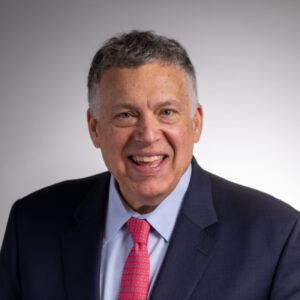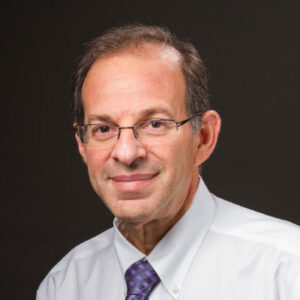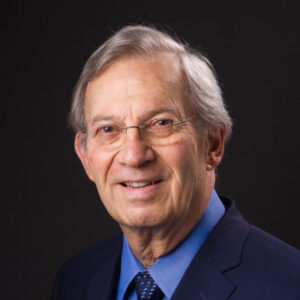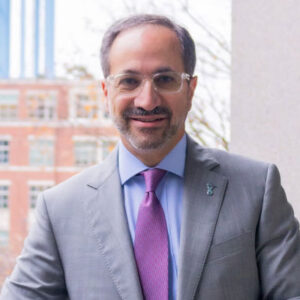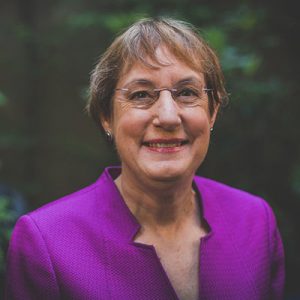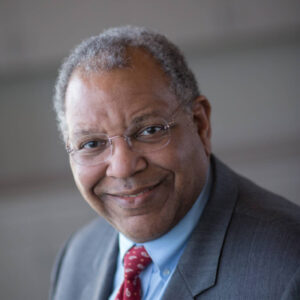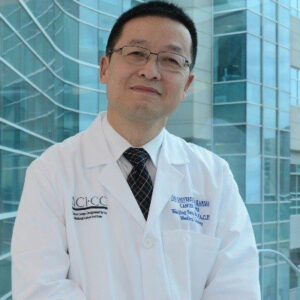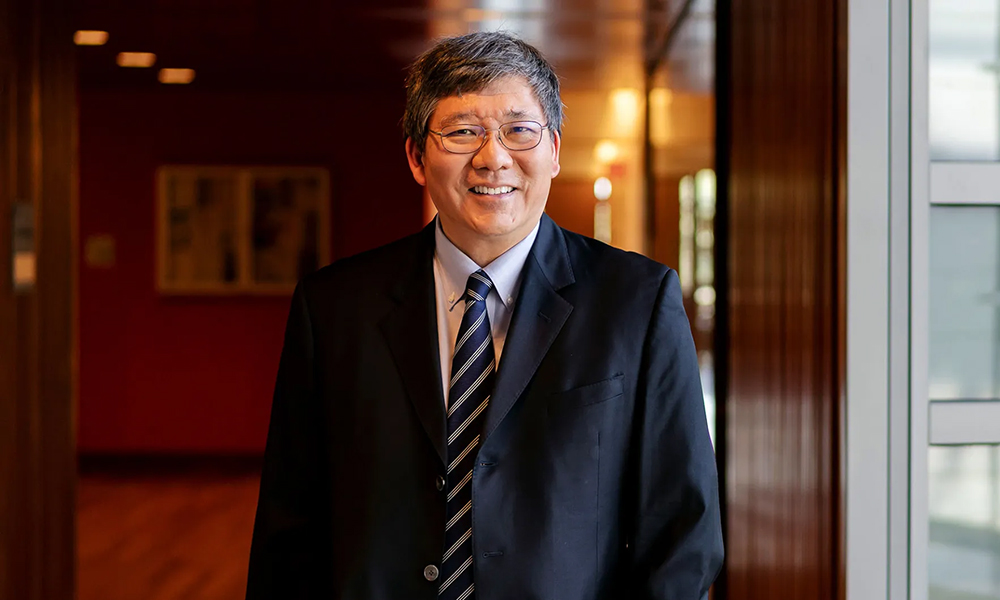

Edward Chu was an expert in pharmacology whose research improved therapies for colorectal cancer, leading to the identification of new treatment targets and driving scientific advances in the field.
His understanding of cancer centers—how they are structured and how they operate—led many institutions to reach their highest potential. His ability to make complicated concepts seem simple was appreciated by medical students and directors of cancer centers. And, above all, he was a good guy, a really good guy, known for his wisdom, his wickedly funny, self-effacing sense of humor, and his infectious, full-throated laugh.
Chu, who improved every institution he worked in, directed, or advised while turning patients, trainees, and colleagues into friends, died of glioblastoma on Nov. 13. He was 66.
Chu’s “leadership, mentorship, and commitment…helped shape Yale’s oncology programs”


Deputy director,
Chief, Medical Oncology and Hematology,
Yale Cancer Center and Smilow Cancer Hospital
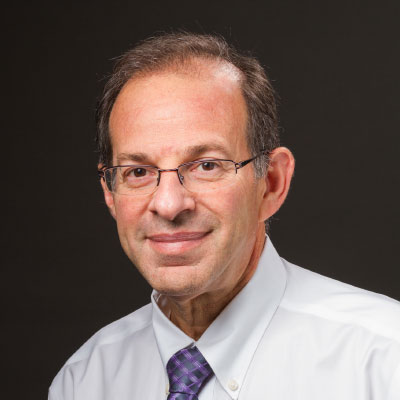

Professor of medicine,
Yale Cancer Center
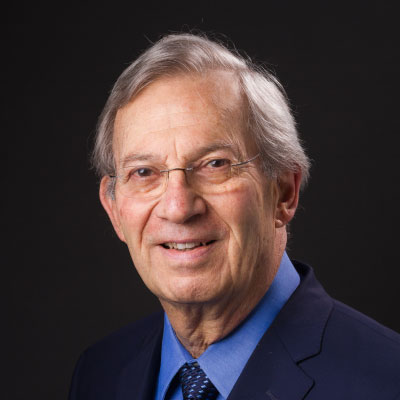

Amy and Joseph Perella Professor of Medicine,
Yale Cancer Center
We are deeply saddened to share the passing of Edward Chu, MD, MMS, a beloved friend, former Yale colleague, model physician-scientist, and esteemed leader in academic oncology.
Dr. Chu died on Tuesday, Nov. 13, after facing glioblastoma with remarkable courage. Deeply devoted to his family, he was surrounded by his wife, Dr. Laurie Harrold, and their children, Ashley and Josh.
The only son of cancer pharmacologists Ming Chu, PhD, and Shih-Hsi (Shi-Hsi) Chu, PhD, Dr. Chu grew up in Rhode Island and completed his undergraduate, master’s, and medical degrees at Brown University, followed by an internal medicine residency at Roger Williams Medical Center.
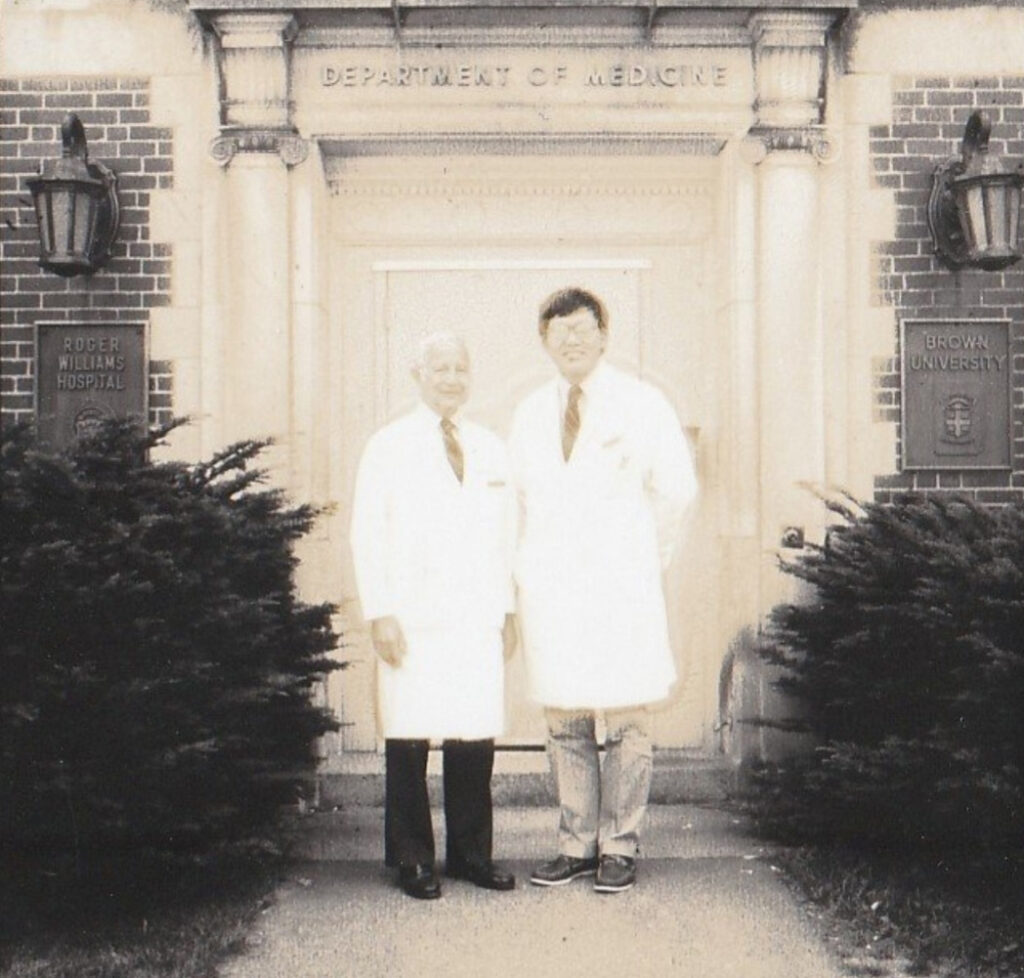

Under the mentorship of the late Dr. Paul Calabresi, he developed a lifelong commitment to cancer research that continued during his medical oncology fellowship at the National Cancer Institute.
He joined the NCI senior staff in 1990 and became a tenured senior clinical investigator in both the NCI Medicine Branch and the NCI–Navy Medical Oncology Branch in 1994.
Dr. Chu was recruited to Yale School of Medicine in 1996, where he made an enduring mark on our community. He served as director of the VA Connecticut Cancer Center and co-led the Yale Cancer Center Developmental Therapeutics Research Program.
In 2004, he was named chief of medical oncology and associate director for clinical and translational research, and in 2007 he became deputy director of the center.
Dr. Chu was always accessible and unwavering in his support for the growth and success of his faculty and mentees. His leadership, mentorship, and commitment to advancing cancer research and patient care helped shape Yale’s oncology programs and left a lasting impact on countless faculty, trainees, and staff.
He was known for providing thoughtful guidance and detailed feedback on grant submissions—often within 24 hours of being asked.
In 2010, Dr. Chu was recruited to the UPMC Hillman Cancer Center and the University of Pittsburgh School of Medicine, where he served as deputy director, chief of the Division of Hematology-Oncology, co-leader of the Cancer Therapeutics Program, and director of the Phase I Program for a decade.
Dr. Chu’s expertise in pharmacology and his dedication to improving therapies for colorectal cancer led to the identification of new treatment targets and drove significant scientific advances in the field.
In 2020, Dr. Chu was appointed director of the Montefiore Einstein Comprehensive Cancer Center, vice president of cancer medicine, and the Carol and Roger Einiger Professor of Cancer Medicine.
His leadership was transformative: he unified the cancer enterprise, helped secure the center’s first NCI Comprehensive Cancer Center designation, recruited more than 65 faculty members, established a phase I program, expanded translational research funding, and opened a new breast center.
A very loyal friend, he treated his friends like extended family and remained deeply connected to his friends and colleagues at Yale throughout his time in Pittsburgh and New York.
In recent years, he continued to support Yale Cancer Center as a member of its External Scientific Advisory Board, offering wisdom and guidance drawn from decades of experience.
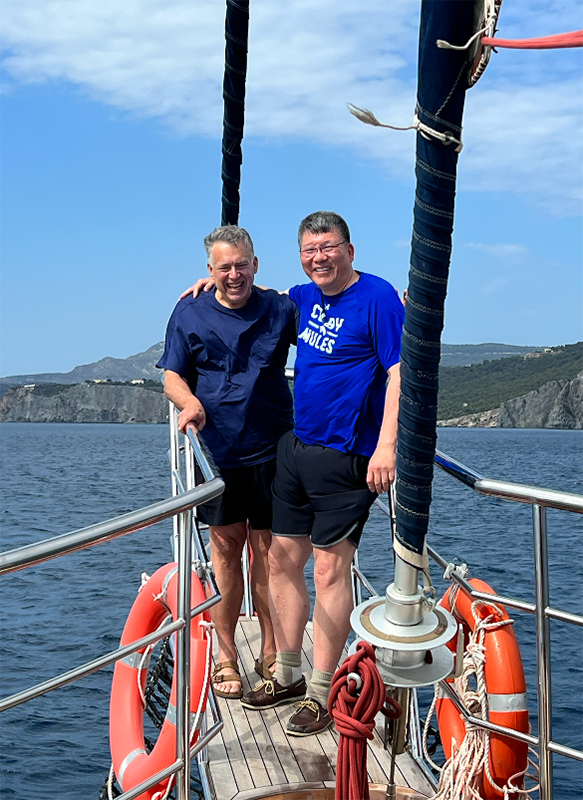

Photo credit: Roy S. Herbst
Dr. Chu will be profoundly missed by many. We extend our heartfelt condolences to his family, friends, colleagues, and to the entire cancer community whose lives and work he touched.
Chu was a “quintessential servant leader” at Pitt
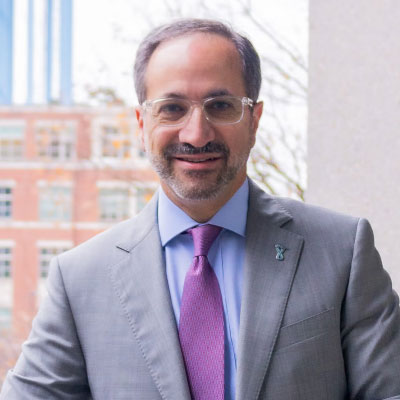

Executive director,
Lineberger Distinguished Professor,
Lineberger Comprehensive Cancer Center,
University of North Carolina;
Chief, Oncology Clinical Services,
UNC Health System
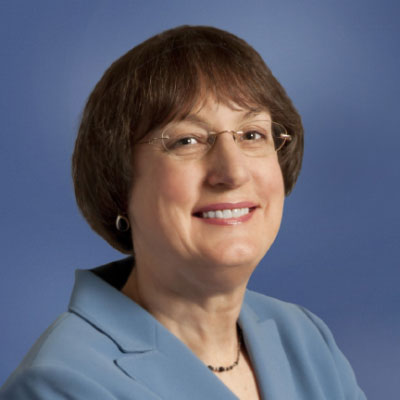

Executive vice president,
Chief academic officer,
Fred Hutchinson Cancer Center;
Raisbeck Endowed Chair in Collaborative Research,
Professor,
University of Washington
With the passing of Dr. Ed Chu, the oncology community has lost a gentle giant, one who selflessly devoted his career to developing new cancer therapies as a leader in the early-phase clinical trial field.
Based on his trajectory of growth and leadership at the National Cancer Institute and Yale Cancer Center, he was recruited to the University of Pittsburgh Cancer Institute by cancer center director, Dr. Nancy Davidson, in 2010 to serve as deputy director of the cancer center and chief of the Division of Hematology and Oncology.
At Pitt, he was instrumental in growing the experimental therapeutics program through leadership of multiple NCI team science awards.
Dr. Chu continued his leadership at Pittsburgh with Dr. Robert Ferris, who became cancer center director in 2017, until his departure in 2020 to serve as cancer center director for Montefiore Einstein Cancer Center. There, he led the successful renewal of their CCSG and designation as a Comprehensive Cancer Center.
He also provided tireless service ,helping others to make their cancer centers as strong and well-organized as possible through his term as chair of subcommittee A of the NCI, overseeing numerous site visits, and providing leadership for countless external advisory boards.
Ed was known for his tremendously friendly and welcoming nature, a steady hand for mentoring, and career vision, and outstanding patient care for patients with gastrointestinal cancers. As two cancer center directors who worked firsthand with him in Pittsburgh, we were blessed with his indispensable partnership, wisdom, and often frank feedback, which propelled cancer center growth and success.
Ed was the quintessential servant leader, who was focused on others’ success and the greater good. He understood the key role of the NCI and the core grant as a bedrock for supporting cancer research, education, and treatment.
Ed’s grasp of basic and translational science, especially in experimental therapeutics and the intersection of Chinese natural products and cancer prevention, and his ability to teach and educate, were certainly benefited by his deep melodious voice that kept you listening.
Robert L. Ferris and Nancy E. Davidson
Through his professional life, Ed was also a dedicated husband, father, and son, married to another accomplished oncologist, Dr. Laurie Harrold, with whom he raised two children who grew up and were educated in Pittsburgh.
Anyone who spent time with Ed remembers his sense of humor and collegiality, big smile and deep voice. He had an infectious, deep-throated laugh that filled the room and brought everyone along with him.
Ed’s grasp of basic and translational science, especially in experimental therapeutics and the intersection of Chinese natural products and cancer prevention, and his ability to teach and educate, were certainly benefited by his deep melodious voice that kept you listening.
What he learned from many other cancer centers was clearly evident in the tremendous success he had as an NCI Cancer Center director himself. We loved hearing from him at ASCO or NCI directors’ retreats about his success in restoring and building the Montefiore Einstein Comprehensive Cancer Center to its well-deserved glory.
In short, Ed was the consummate researcher, partner, and cancer center leader that we all hope and strive to become. He represented an exceptional role model for oncologists and translational/clinical researchers. He will be sorely missed, but his legacy will not be forgotten.
“The true Ed Chu was soft mannered, a great communicator, and a gifted teacher”


Bloomberg Distinguished Professor of Oncology and Epidemiology,
Sidney Kimmel Comprehensive Cancer Center,
Johns Hopkins University
Ed Chu’s life will be celebrated in many obituaries. They will note that he went to college and medical school at Brown, trained in medical oncology at the National Cancer Institute, worked at and indeed shaped the cancer centers at Yale, the University of Pittsburgh, and Montefiore Einstein.
In a very short time, he successfully led Montefiore Einstein to Comprehensive status.
Some will note his scientific contributions to our understanding of the interactions of thymidylate synthase, folate, and 5-fluorouracil—knowledge that is important to advancing the treatment of colon and other cancers.
The true Ed Chu was soft-mannered, a great communicator, and a gifted teacher. He could tell a story and make the most complex seem simple.
Every year, many of us looked forward to his three pharmacology lectures given at the annual George Washington University Medical Oncology Board Reviews. Those lectures, which were updated every year as more anticancer drugs were approved, have become classics in cancer medicine. Reviewing them is a must for many who practice medical oncology.
In addition, his book with Dr. Vincent DeVita, “The Physician’s Cancer Chemotherapy Drug Manual” is published annually.
For Ed, his career in cancer pharmacology was the result of both genetics and environment. He would often remind us that both of his parents were cancer researchers and he was mentored by some of the greats of oncology, among them Joe Bertino, Paul Calibresi, Bruce Chabner, and Vincent DeVita.
Ed was a friend, confidant, and mentor to many of his peers. He was a level-headed, thoughtful guy with good scientific and political instincts. His scientific work and the work of his students will touch society for decades to come.
May his memory be a blessing.
Ed Chu “paired scientific brilliance with profound compassion”
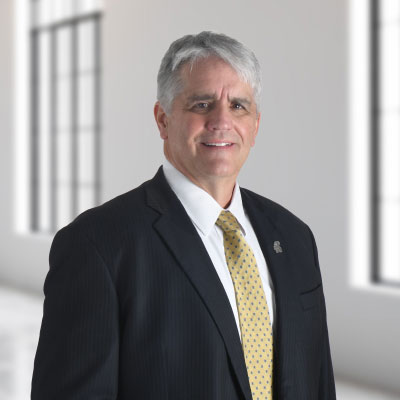

Vice chancellor,
Director,
The University of Kansas Cancer Center
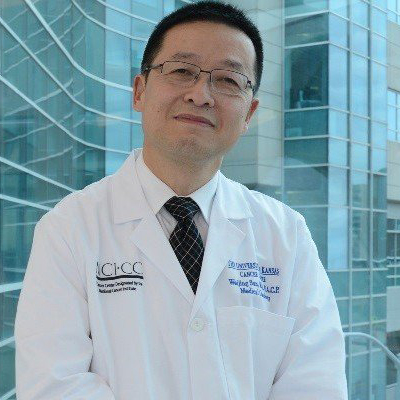

Associate director,
Clinical research,
The University of Kansas Cancer Center
Dr. Ed Chu was widely recognized as an internationally respected leader in cancer medicine—a visionary physician-scientist whose pioneering work in cancer drug development transformed the field.
He paired scientific brilliance with profound compassion, earning deep trust and admiration from the patients he cared for throughout his career.
A remarkable builder and strategic leader, Dr. Chu played a pivotal role in elevating multiple institutions and programs to National Cancer Institute-designated Comprehensive Cancer Center status.
Dr. Chu was the epitome of a true servant leader who was always the adult in the room, and the quiet, but firm Baritone of Reason, which inspired confidence in those lucky enough to be his colleagues and mentees.
Ed was a compassionate mentor and gifted educator. He shaped the careers of more than 40 students, residents, and fellows, as well as countless faculty colleagues. His guidance extended nationwide as a trusted advisor to leaders of more than 20 NCI-designated cancer centers and in service as a member of the Association of American Cancer Institute’s board of directors.
At the University of Kansas Cancer Center, we will always be grateful for his insight, advice, and service as a member of our External Advisory Board.
Ed’s legacy endures in his groundbreaking contributions to clinical pharmacology, particularly on early chemotherapy drugs that provided foundations for later discoveries of cancer therapies as we know them today and still guides current advanced translational cutting-edge therapies. His “Physicians’ Cancer Chemotherapy Drug Manual” remains an essential reference for oncology fellows around the world.
Ed’s impact reached far beyond the United States. He was deeply committed to global collaboration, helping to establish and strengthen cancer research foundations, associations, and networks in Taiwan, China, Japan, and India. His leadership helped the worldwide war against cancer.
Proud of his Chinese heritage, Ed was an inspiring Chinese American leader—a role model whose integrity, dedication, and generosity shaped generations of young scientists and clinicians.
He will be remembered not only for his groundbreaking scientific achievements and leadership, but also for his kindness, vision, and unwavering commitment to improving the lives of others.
Chu was a transformative leader at Montefiore
Montefiore Einstein staff
Dr. Chu was the director of the Montefiore Einstein Comprehensive Cancer Center, vice president of cancer medicine, and the Carol and Roger Einiger Professor of Cancer Medicine. He also served as interim chair of oncology until last year and held faculty positions in the departments of oncology, medicine, and molecular pharmacology.
Dr. Chu arrived on the Montefiore Einstein campus in October of 2020, while the Bronx and the country were still recovering from the first devastating wave of the COVID pandemic.
Undaunted, he quickly assembled a senior leadership team, developed a comprehensive strategy, and launched a massive recruitment effort, with the goal of establishing a unified cancer enterprise and securing comprehensive designation from the National Cancer Institute (NCI) for the 50-year-old cancer center.
As a member of the center’s external advisory board for nearly 15 years, Dr. Chu was well acquainted with its research strength. He respected and touted the center’s long and storied history, while forging ahead with a vision for a revitalized cancer enterprise that integrated clinical care and expanded its translational and clinical research footprint.
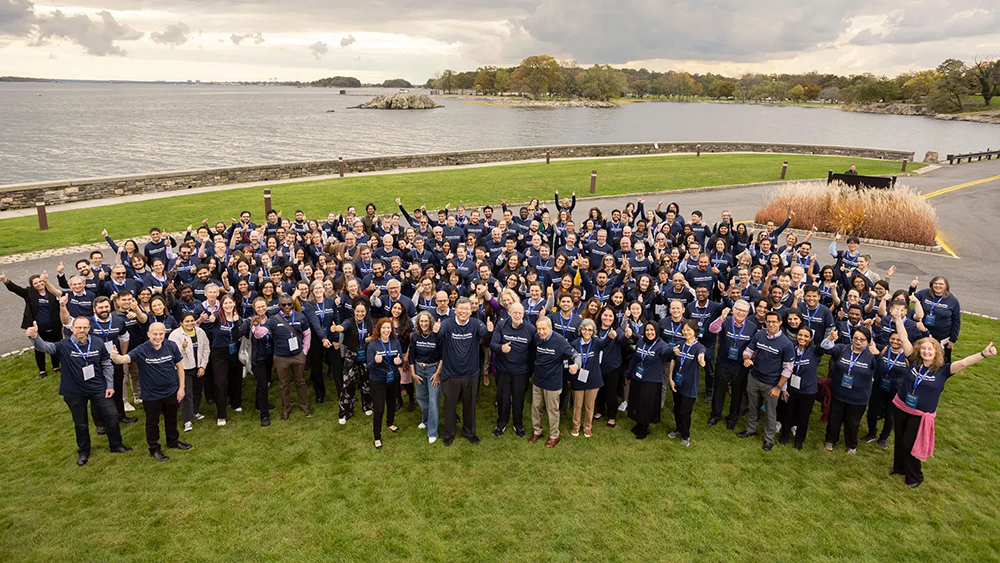

2023 Montefiore Einstein Comprehensive Cancer Center Retreat.
Photo credit: Montefiore Einstein Newsroom
“Dr. Ed Chu’s impact on cancer research and medicine is already monumental, yet we know the world has yet to appreciate the full impact of Ed’s work,” said Philip O. Ozuah, president and CEO of Montefiore Einstein. “The breadth of his transformational work at the Montefiore Einstein Comprehensive Cancer Center, the speed with which he executed his plan, and the outsized results he was able to achieve are just a few examples of his enduring legacy. The entire Montefiore Einstein family mourns the loss of a true pioneer and visionary.”
As a cancer center, Einstein was previously focused primarily on research. By becoming the inaugural vice president for cancer medicine at Montefiore Einstein, Dr. Chu oversaw clinical cancer care across the entire Montefiore Health System, which serves the Bronx, Westchester, and the Hudson Valley.
Dr. Chu led the effort, in a mere two years, to build a fully integrated, unified cancer center, spanning basic science, translational research, clinical care, and community outreach, which resulted in our first comprehensive designation from the NCI.
“It’s hard to overstate what Ed was able to accomplish in his short time here,” said Yaron Tomer, the Marilyn and Stanley M. Katz Dean at Einstein. “He was a visionary leader, creating an aspirational but pragmatic plan and inspiring hundreds of researchers, clinical staff, and administrators to embrace his vision. He truly transformed cancer research and care in the Bronx.”
While monumental on its own, Dr. Chu’s list of accomplishments at MECCC is extensive: he recruited 65 faculty members, which meaningfully expanded our research and clinical missions; established a phase I clinical trial program, elevating the center’s ability to develop and provide cutting-edge therapies to patients; oversaw the opening of the new Montefiore Einstein Breast Care Center in the Hutchinson Metro Center, consolidating services in a state-of-the-art facility; and super-charged its translational research program by providing millions in pilot and accelerator grants.
“Ed was a giant in the field of cancer research and care, and he had an extraordinary impact on patients and their families, as well as colleagues,” said Ulrich Steidl, interim director of MECCC, professor and chair of cell biology, and the Edward P. Evans Endowed Professor for Myelodysplastic Syndromes. “He leaves behind a remarkable legacy of leadership, research, clinical care, and mentorship excellence at MECCC and the numerous cancer centers around the country where he served as an advisor. Above all, Ed was a close friend and great mentor and teacher to many including myself. I will always be grateful and remember him for his personal warmth and kindness and his willingness to support others.”
Chu is survived by his loving wife, Dr. Laurie Harrold, and two children, Ashley and Josh Chu, two dogs, many cousins, and countless friends and colleagues whose lives he touched each day.
One way to honor Dr. Chu’s legacy is to contribute to the Edward Chu Fund for Cancer Research, which will fuel innovative cancer research with the power to advance new discoveries from basic science laboratories to patient care.


